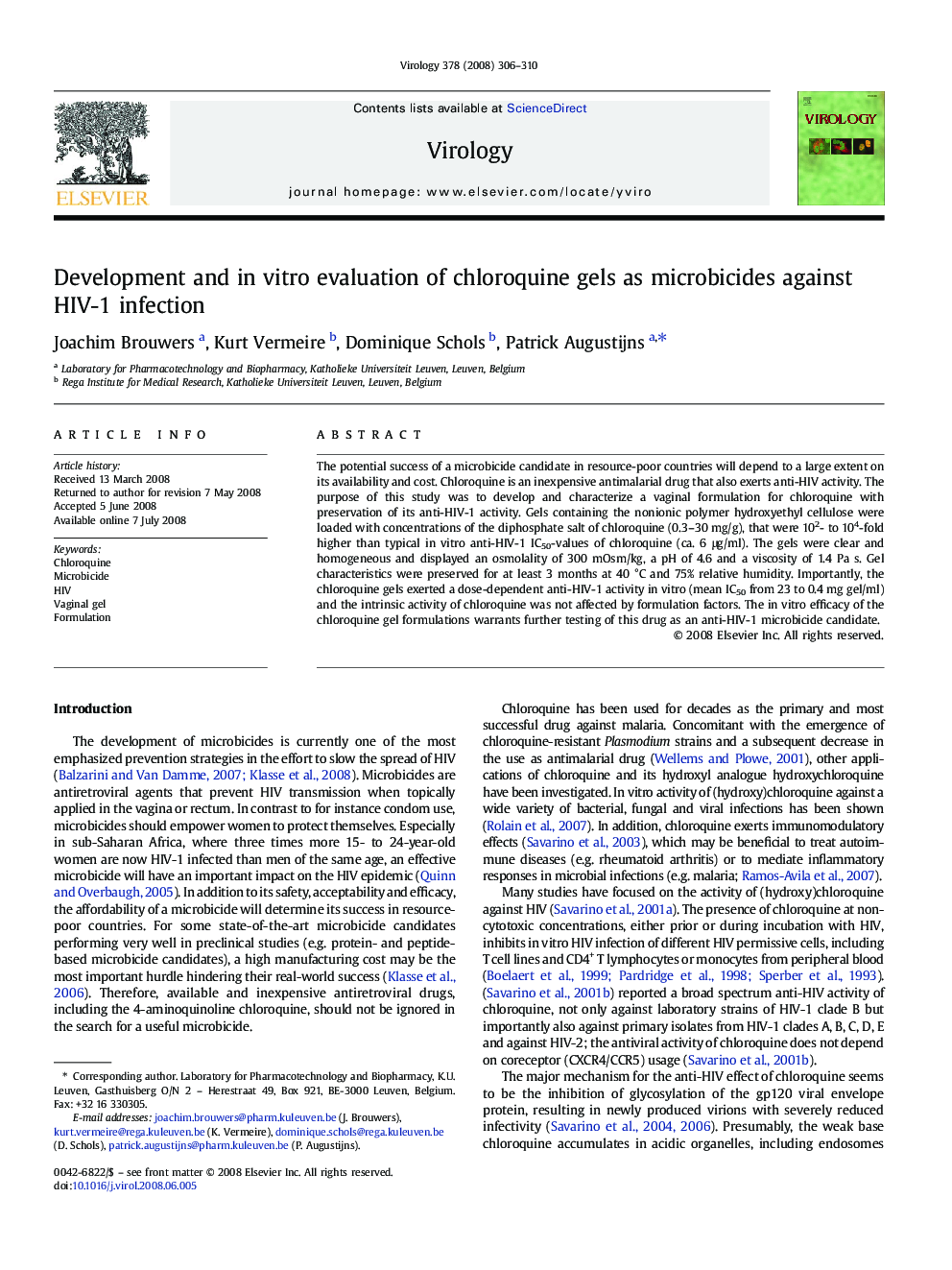| Article ID | Journal | Published Year | Pages | File Type |
|---|---|---|---|---|
| 6141912 | Virology | 2008 | 5 Pages |
The potential success of a microbicide candidate in resource-poor countries will depend to a large extent on its availability and cost. Chloroquine is an inexpensive antimalarial drug that also exerts anti-HIV activity. The purpose of this study was to develop and characterize a vaginal formulation for chloroquine with preservation of its anti-HIV-1 activity. Gels containing the nonionic polymer hydroxyethyl cellulose were loaded with concentrations of the diphosphate salt of chloroquine (0.3-30 mg/g), that were 102- to 104-fold higher than typical in vitro anti-HIV-1 IC50-values of chloroquine (ca. 6 μg/ml). The gels were clear and homogeneous and displayed an osmolality of 300 mOsm/kg, a pH of 4.6 and a viscosity of 1.4 Pa s. Gel characteristics were preserved for at least 3 months at 40 °C and 75% relative humidity. Importantly, the chloroquine gels exerted a dose-dependent anti-HIV-1 activity in vitro (mean IC50 from 23 to 0.4 mg gel/ml) and the intrinsic activity of chloroquine was not affected by formulation factors. The in vitro efficacy of the chloroquine gel formulations warrants further testing of this drug as an anti-HIV-1 microbicide candidate.
